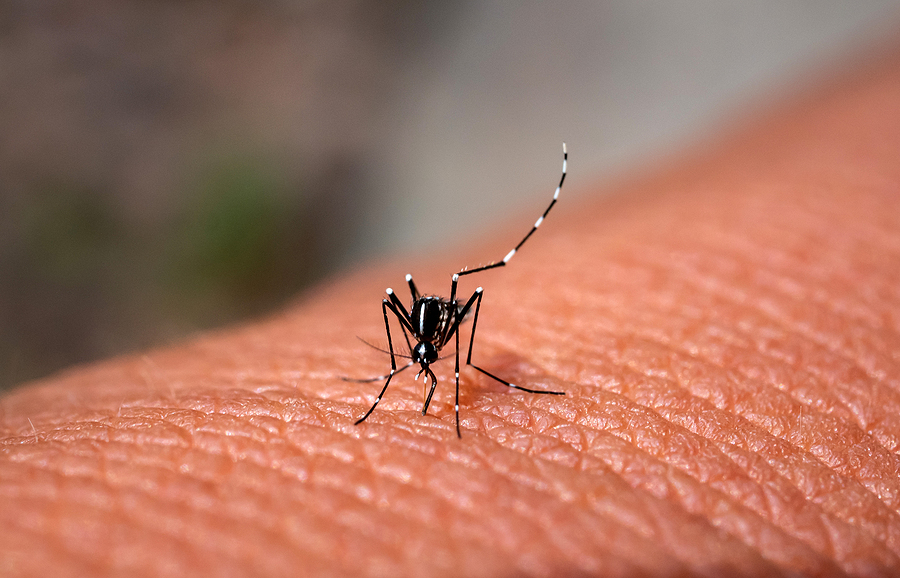Warm temperatures often signal the arrival of summer. Unfortunately, the temperature rise also attracts all kinds of insects.
Bites from insects such as mosquitos, fleas, flies, and ticks are not only a nuisance while you’re enjoying your time in the outdoors, but they can also cause diseases such as malaria, dengue fever, Lyme disease, among others.
So, as you grab your sunscreen this summer, consider taking some bug spray too.
But do pest repellers really work, and are they safe to use?
Let’s find out.
Are Insect Repellents Effective?
Table of Contents
Scientific research indicates that insects are attracted to the carbon dioxide that we exhale and our skin odor. This is why some people are more prone to insect bites than others. It’s also believed that insects lookout for visual and movement cues to find a host.
When you use a repellent on your skin, it interferes with the insect’s sense of smell, preventing it from attaching to you as its host.
The efficiency of the insect repellent depends on the nature and concentration of the ingredients used. Further, the Centers for Disease Control and Prevention (CDC) recommends using repellents that have been tested and registered with the Environmental Protection Agency (EPA). Such repellents have one or more of the EPA’S recommended ingredients.
Advantages of Insect Repellents
Compared to other ways of repelling insects, synthetic bug sprays are cheap, require little effort to use, and can provide indoor and outdoor protection.
Other advantages of insect repellents include:
1. Instant and Effective Solution
Bug sprays use chemicals that effectively protect you from insect intrusion. By masking the insect scent, an insect repeller will protect you from bug bites, skin eruptions, rashes, and the diseases that are associated with such bites.
Besides, commercial repellents, unlike homemade ones, have been tested and proven to be effective, so you can rest assured that they will protect you.
2. Provide Protection from Multiple Insect Bites and Diseases
An insect repellent is an effective tool to combat many of the common pests in your home. Most of these insect sprays will act on multiple pests and flying insects keeping you safe from bites and diseases.
Moreover, an insect repellent will also protect you both indoors and outdoors as it’s portable. So if you plan to take a walk by the park, the garden, or go camping, you can carry it along for maximum protection.
3. Plenty of Alternatives
Bug repellents come in different kinds, including chemical repellents, which are often applied directly to the skin. Others include spatial repellents such as coils, vaporizers, and essential oils, which produce vapor. We also have gadgets such as ultrasonic and electromagnetic insect repellents that produce electromagnetic and ultrasonic waves.
Having plenty of alternatives means that if you’re allergic to certain chemicals or gels found in chemical sprays, you have other choices in spatial or ultrasonic repellents.
Disadvantages of Insect Repellents
Bug repellents have their drawbacks, some of which include:
1. Causes Allergic Reactions to Some People
Applying chemical insect repellents on the skin can lead to allergic reactions to people with sensitive skin.
Similarly, if you’re sensitive to some scents, spatial insect repellents that produce vaporized liquid may fill the room with a strong fragrance. Other bug sprays may have insecticides that may have mild health effects on some people.
2. Won’t Last Long
A bug spray has a short-term effect when it comes to protecting you from insects. The effect of chemical, spatial, and gadget insect repellents only last a few hours, after which you may need to use more of the repellent.
Remember, applying too much of the repellent doesn’t protect you for longer but can in fact, harm your health. Other precautions you can take when using bug repellents include:
- Don’t over-apply an insect repellent on your skin
- Don’t apply a repellent on an open or irritated skin
- Avoid rubbing the repellent on your eyes, ears, or mouth
- Use an insect repellent away from food and other edible products
In closing, insect sprays have been tested and shown to be effective. If you want maximum protection, remember to use the repellent according to the label instructions.
Image Source: BigStockPhoto.com (Licensed)
Related Categories: Health, Reviews, Safety








